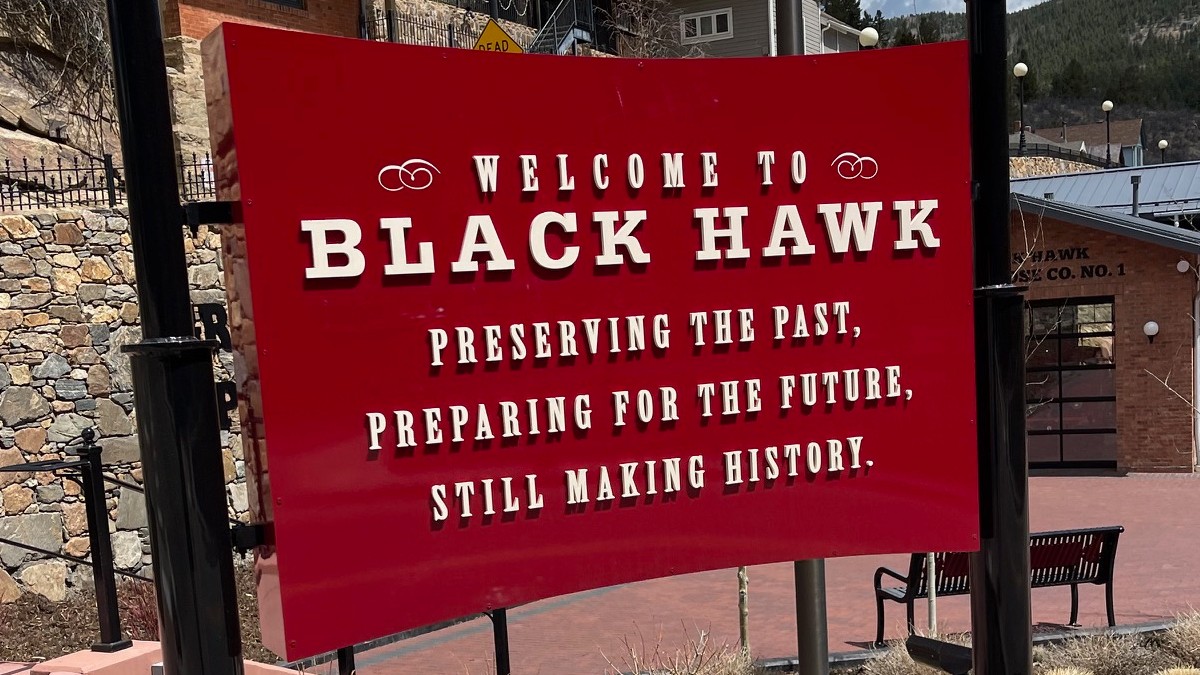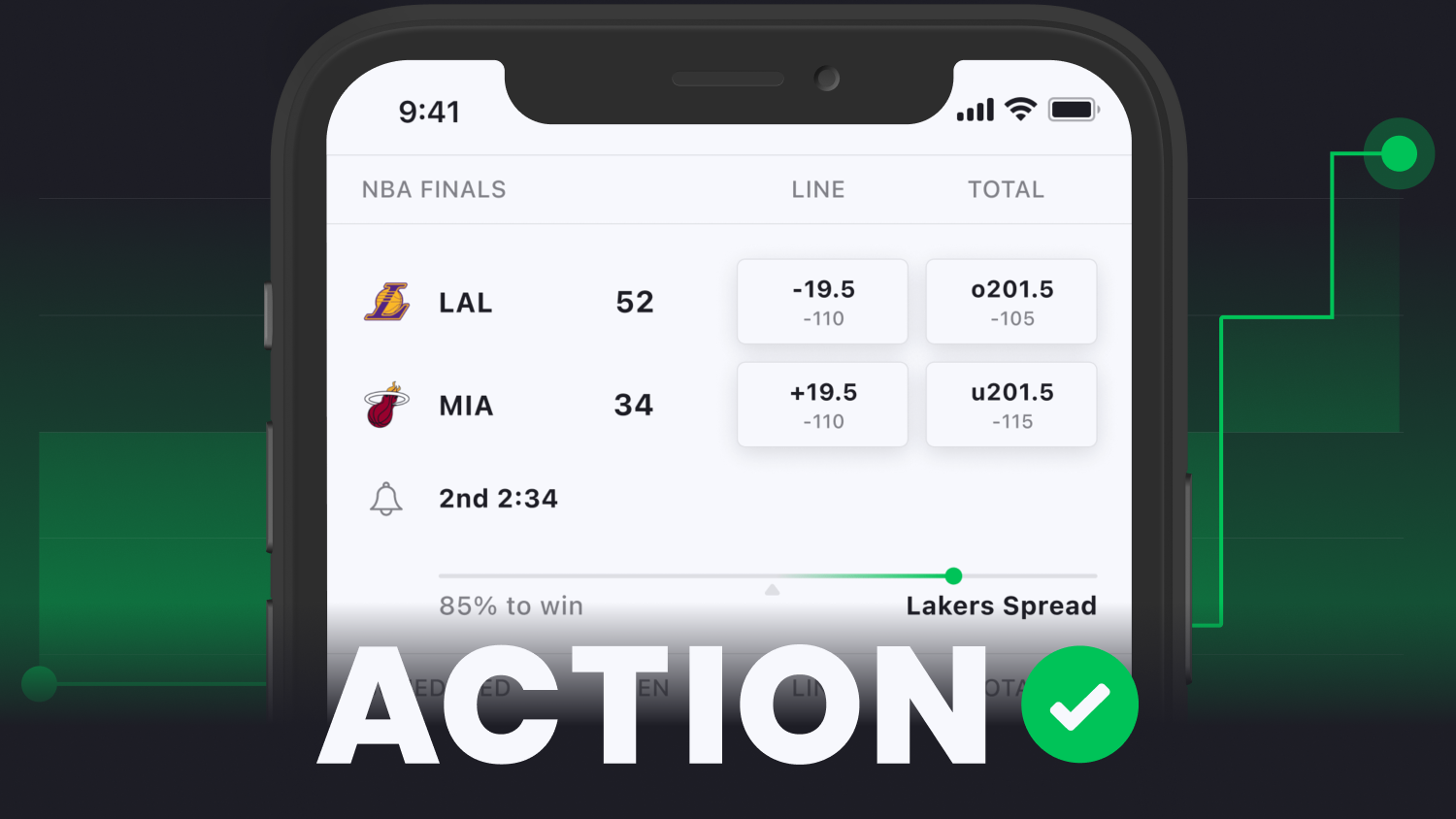BLACK HAWK, Colo. — On a spring afternoon in a small Colorado town, there are so few people outside that you can hear the water rushing in the North Clear Creek that runs through town.
There are so few residents here that if you walk the less than two square mile stretch that makes up this city, you likely won't see a single person that actually lives there.
And yet, this town of roughly 100 residents who live in 61 homes is the most valuable town in legalized sports gambling America.
As we usher in the fifth anniversary of a Supreme Court decision that allowed states to decide their own sports gambling fate, Black Hawk, Colorado stands alone as the sports gambling capital of this new world.
In the era of the repeal of the Professional and Amateur Sports Protection Act of 1992, there are more valuable states than Colorado. Five states — New Jersey, Nevada, New York, Pennsylvania and Illinois — have each taken more than $20 billion in bets over the last five years.
But it’s Colorado which is the most impressive on a per capita basis, having taken in a whopping $11.6 billion in sports bets since May 2020, seventh-most in the country despite being No. 13 in population among states which have legalized.
And Black Hawk is its star.
Along Black Hawk's less than two mile road, there are 15 casinos. Inside those casinos, many of which are designed to mimic a “Sin City” vibe, just under $900 million worth of gambling revenue was produced in 2022, making it the 13th-most valuable city in gaming, according to the American Gaming Association.
In fact, last year, 14% more gaming revenue was generated in tiny Black Hawk than revitalized downtown Las Vegas.
In sports betting, Black Hawk’s value is in being the land-based location for online sportsbooks. Mobile gaming is where the vast, vast majority of bettors place their wagers.
And as is the case with most states, sportsbooks that operate on mobile must be tied to a land-based casino.
So, in Black Hawk, Penn’s Ameristar hotel added its Barstool Sportsbook. The Lodge Casino struck a deal with legendary Vegas brand SuperBook. Caesars came into the Isle Casino, which was rebranded Horseshoe.
And so on.
Colorado has 24 mobile sportsbooks, a testament to one of the least stringent tax programs on sports betting in the country. Compare New York and Pennsylvania taking 51 and 36% of sportsbook profits compared to Colorado at 10%.
Half of those sportsbooks in Colorado are tied to Black Hawk, but those books include the largest players like DraftKings and Caesars. That means in an average month, roughly 70% of Colorado’s sports betting handle is emanating from the Black Hawk relationship.
And now here comes the awkward part. The most valuable city in sports gambling doesn't really make any money on sports gambling itself.
Why?
Because deals regarding mobile sports betting are struck solely between the sportsbook and the property, the city of Black Hawk only gets money from bets placed at casinos.
And it's even worse than that. If a bettor walks up to the window, the city gets no piece of the pie. The only way Black Hawk is making money is from the number of kiosks that sportsbooks have — a $4,200 annual fee per kiosk to the city.
At nearly 3,700 square feet, one of the largest physical sportsbooks is the Barstool Sportsbook at the Ameristar, but the area only has six kiosks, meaning the city is only making $25,200 off the book this year. The city makes the same fee per slot machine, which will generate more than $4.2 million.
"While our relationships have helped sports gambling grow, in a way, you can say that sports gambling has hurt us monetarily," said David Spellman, a fifth generation Black Hawk resident who has been on the city council for 36 years and has been the city's mayor for the last 17 years. "At our height we had 10,000 slot machines and now we are down to 6,200. The sportsbooks take up space and 98 or 99% of sports betting is happening by mobile."
Spellman told the Action Network that when sports gambling was legalized within the state Black Hawk proposed to get at least a piece of the handle that was bet in town, but it was quickly shot down for fear that it would become a precedent that the big boys clearly didn't desire.
While Black Hawk’s actual location doesn’t matter much to online sports gambling, being in Colorado does. As the chips have fallen, Colorado geographically lies in one of the deepest online black hole sports betting market outside of California and Texas. What does this mean? To its west lies Idaho and Utah and to its south is New Mexico. None of these states have online sports gambling. North of Colorado is Montana, North Dakota and South Dakota, which have retail locations, but no online. But there’s Nevada right? Not necessarily. In order to bet online in Nevada, one has to sign up at a physical sportsbook.
To understand how Black Hawk got here, you’d have to go back more than 160 years. That’s when Georgian John H. Gregory found the first vein of gold bearing quartz in Black Hawk’s neighboring Central City. Over the next 20 years, until 1880, the area became known as “The Richest Square Mile on Earth.” The amount of gold found in the small area over those two decades would be worth $3.4 billion at today’s prices.
And while gold ultimately led Colorado to become a separate territory and eventually a state, gold came in and out of Black Hawk and Central City. But when things dried up, nearly everyone left.
Gambling on gold soon turned to illicit table games in the 1940s, as the Smaldone crime family found the Colorado mountain towns to be perfectly secluded — until word got around and things were busted.
For the next 40 years, Black Hawk was barren and almost got eradicated. Things were so desperate in the late 1980's that Colorado governor Roy Romer suggested that the only way to save itself was to accept his plan to build a prison there.
Black Hawk held out for gaming, and in 1991, an amendment allowed for $5 maximum table games.
Over time, Central City gravitated to gambling through its historic architecture — which evoke old Western saloons — while Black Hawk modeled itself after Las Vegas.
"That we got to where we did is against all odds," said Spellman, whose great-great-grandmother Katie Carr moved to Black Hawk in 1861. "We didn't have the name recognition, we didn't have the budget — when we got gambling our city's budget was $145,000 — but we did have a vision."
When table game limits went to $100 and sports betting came to Colorado in May 2020, Black Hawk’s casinos were ideal to partner with.
"There were projections when sports gambling became legal that the state would do $1 billion a year in wagers," Spellman said.
This year, Colorado is on pace to take in $6 billion and the city whose residents could all fit inside one of the town's sportsbooks is now giving Las Vegas strip a run for its money on the moniker it used to own: "The richest square mile on Earth.”


